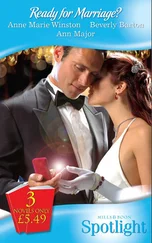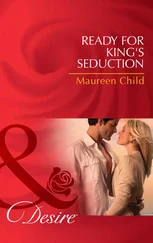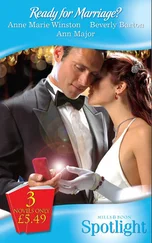Franketienne - Ready to Burst
Здесь есть возможность читать онлайн «Franketienne - Ready to Burst» весь текст электронной книги совершенно бесплатно (целиком полную версию без сокращений). В некоторых случаях можно слушать аудио, скачать через торрент в формате fb2 и присутствует краткое содержание. Год выпуска: 2014, Издательство: Archipelago, Жанр: Современная проза, на английском языке. Описание произведения, (предисловие) а так же отзывы посетителей доступны на портале библиотеки ЛибКат.
- Название:Ready to Burst
- Автор:
- Издательство:Archipelago
- Жанр:
- Год:2014
- ISBN:нет данных
- Рейтинг книги:3 / 5. Голосов: 1
-
Избранное:Добавить в избранное
- Отзывы:
-
Ваша оценка:
- 60
- 1
- 2
- 3
- 4
- 5
Ready to Burst: краткое содержание, описание и аннотация
Предлагаем к чтению аннотацию, описание, краткое содержание или предисловие (зависит от того, что написал сам автор книги «Ready to Burst»). Если вы не нашли необходимую информацию о книге — напишите в комментариях, мы постараемся отыскать её.
Ready to Burst
The New York Times
Ready to Burst — читать онлайн бесплатно полную книгу (весь текст) целиком
Ниже представлен текст книги, разбитый по страницам. Система сохранения места последней прочитанной страницы, позволяет с удобством читать онлайн бесплатно книгу «Ready to Burst», без необходимости каждый раз заново искать на чём Вы остановились. Поставьте закладку, и сможете в любой момент перейти на страницу, на которой закончили чтение.
Интервал:
Закладка:
I left school one afternoon. Nearing the Cathedral, I was caught in a sudden downpour and obliged to take shelter inside the church. Hours passed and the rain kept coming down. At seven in the evening, a priest, followed by the sexton, came around. Ceremoniously, he reminded all those present that the doors to the church would be closing and that we would all have to evacuate God’s house. I didn’t wait for him to finish his sermon. I was the first to leave, braving the furious downpour. I arrived home soaked to the bone. My mother gave me some ginger tea. And she rubbed my chest. Despite these efforts, because of my weak bronchial tubes, I fell seriously ill and owe my life to an unending list of medical prescriptions .
In sixth grade, during the school holidays, I became passionately engaged in reading the Bible. I was floored to discover the existence, on every page, of a cruel and unjust God — a true despot who accepted Abel’s offerings while disdaining those of his brother Cain. That hurt me. I suffered along with Cain. This poor peasant who knew how to till the earth. To sow seeds. To observe the germination and growth of plants. To make out the circulating of green sap in the branches. To pick the most beautiful fruits of his garden. To bring them to his lord and master. Only to be rejected with a slap in the face from He who desired a blood sacrifice. All of that marked me deeply. The inexorability of a god served by angels armed with double-edged swords. The shortsightedness of a vengeful and jealous creator driven to drown his work in a flood. And then his regret at having breathed life into man. All these pages revealed to me the monstrosity of a tyrannical and capricious God .
However, from as far back as I can remember, it was in philosophy class that I received the real sledgehammer argument (don’t worry — I’m not going to bore you with the details of all my readings). Of course, I had gotten to know about History and about the great masters of scientific thought. I knew how Christianity had come into being and developed in the context of the slaveholding Roman Empire until it became the state religion. The Inquisition. The persecution of progressive thinkers. The discrediting of Epicurus, who wanted to free men from their fear of the gods. Giordano Bruno’s auto-da-fé. Vanini’s tongue ripped out. Galileo’s sad story. Darwin’s evolutionism. Marxist theory. Freud’s discoveries. The theological and philosophical uncertainties of Teilhard de Chardin, who preferred talking about the noosphere and the Omega Point as expressions of divine transcendence, following which he should have logically posited, at the end of his scientific research, the spiritual dynamic of matter and the primacy of energy in all cosmic, physical, and biological phenomena. Of course, I knew all of that .
However, what struck me was a perfectly banal fact. It happened in 1955. High schools were going to the airport to welcome the American vice president Richard Nixon. I got into line with everyone else. Suddenly, at Grand Street, I was struck in the forehead by a rock that some kid had thrown at a dog pissing on the wheel of a car. With a black eye and the arch of my eyebrow slightly fractured, I had to leave the parade. Once home, I immediately placed a saltwater compress on the swollen wound. Plunged into bitter thoughts, I shivered at the idea that I easily could have lost an eye for no reason. I spent the whole day trying to find the causes that might have explained the fact that I’d been hit by this projectile. Why me personally and not someone else? I didn’t find any convincing explanation. I also looked for what I might have done wrong, but couldn’t point to anything. So it was that I began thinking about chance. Religion offered no decent explanation. Only scientific data came to my rescue and, just like that, I understood the laws of ballistics: understood, that is, the fact that I’d been walking in line, in step with the rhythm of my column; that the rock had been thrown clumsily, in accordance with its own speed; and, finally, that at one point I’d very logically become a specific target on the trajectory of the projectile. Sudden clarity. I’d seen the light. My heart beat more quickly. I forgot the pain in my head. Chance no longer existed for me. My thoughts extended outward to consider the sufferings of all those who seemed to be victims of some dreadful fate. Those who lived in slavery or misery. Peoples oppressed by wealthy nations. I began to understand it all. Underdevelopment. The appearance of political leaders, artists, scientists, geniuses. Beauty. Ugliness. Natural epidemics. Progress. Vices. Births. Wars. Victories. Defeats. Scientific discoveries. Works of art. From one thing to the next, the world unfolded before me, clear like water from a stone. Nothing stopped me anymore, since I’d found an explanation for all cosmic phenomena. I was now equipped to perform an autopsy on both happiness and sorrow. I left behind anthropomorphism and anthropocentrism any time I needed to analyze some particular occurrence or other. I considered man as one animal among many. And, courageously, I told myself that anything that can happen, good or bad, to any of the other species is just as likely for man. The only difference — a quite significant improvement, to be sure — is that we fully understand the situation! And even there, the keen awareness that we have these problems draws all its enlightenment from the blinding sun of science .
Since then, I look at religion as a trompe l’oeil for the naïve, a screen, a major obstacle to the objective study of human behaviors or any other phenomenon. And the idea of God, a cork to stop up who-knows-what hole. A hole that doesn’t actually exist. Purely imaginary. That shouldn’t frighten anyone .
For the universe is an infinite mass of energy. The void is only apparent as it is constituted by intermediary entities that rely on other unknown regions. New ones. Where man pursues his adventure in an interminable process at once continuous and discontinuous. Where light shines brighter and brighter. Takes us. Tears us away from the monotony of the quotidian. Throws a pure diamond into our hearts. And injects us with the virile audacity that makes this world move along .

A heavy day. Hot. Suffocating. Exhausting. Summer tunes its drums. Suspended by some invisible rigging, the sun, giant monster, casts its voracious tentacles on the rooftops, the streets, the bodies and blinding windows of the cars. Harshly. Ferociously, even. The sun doesn’t grow old. Steadfast eye, it has become a roaming light. The day emerges from the trickle of tears gushing from the blazing eye of this wandering Cyclops. At times, a few stray clouds wipe at the dazzled corners of that eye whose every lash is the clash of a cymbal in the ears of the planet. The striking of a drumstick on the tanned hide of the islands.
Just after noon, the eye gnashes mercilessly. Arms itself with a circle of teeth that bury themselves deep into the bones of all things. Into the very heart of this so-fragile existence. Trees, animals, men cry for mercy. But the burning eye, bursting with vitriol, turns a deaf ear. It holds on to those fine rays that pierce, tear apart. Needlessly penetrating into our guts. Impassible judge, it watches the living as they slowly die. Who, then, could even speak of survival? That would be ridiculous. Who could possibly talk about relief while we find ourselves here at the very bottom of a seething boiler? Such talk could only leave us feeling more crushed, even more broken.
The streets stretch out, veins dried up, thinned out, bloodless. The sun has swallowed everything up. Leaving nothing but powdery earth under the steps of the aimless vagabonds. Throats that have given out from having yawned too much, begged too much, moaned too much. A streak of white dust on the asphalt traces the circle of death.
Читать дальшеИнтервал:
Закладка:
Похожие книги на «Ready to Burst»
Представляем Вашему вниманию похожие книги на «Ready to Burst» списком для выбора. Мы отобрали схожую по названию и смыслу литературу в надежде предоставить читателям больше вариантов отыскать новые, интересные, ещё непрочитанные произведения.
Обсуждение, отзывы о книге «Ready to Burst» и просто собственные мнения читателей. Оставьте ваши комментарии, напишите, что Вы думаете о произведении, его смысле или главных героях. Укажите что конкретно понравилось, а что нет, и почему Вы так считаете.
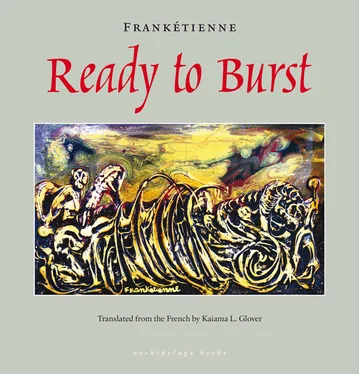
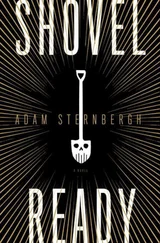

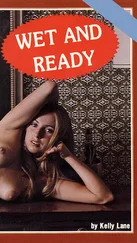
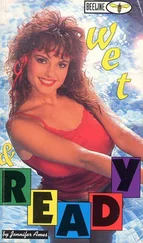
![Эрнест Клайн - Ready Player Two [calibre]](/books/438636/ernest-klajn-ready-player-two-calibre-thumb.webp)

